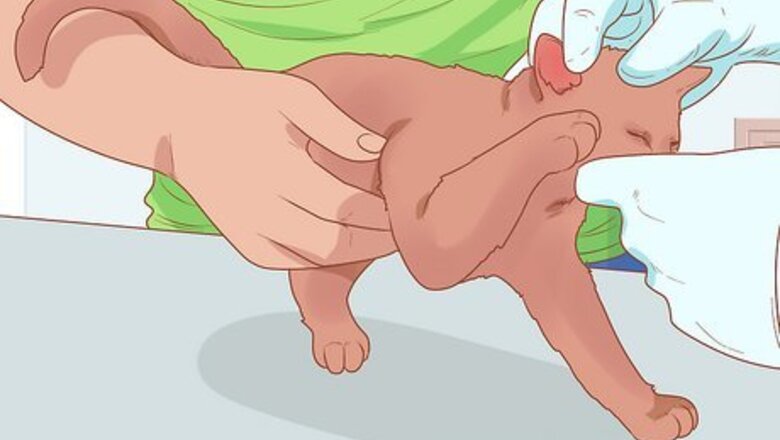
views
- Administer prescription or over-the-counter deworming medications that contain pyrantel pamoate, which kills round and hookworms.[1]
- Start deworming your kitten when they're 3 weeks old, and treat them every 2 weeks until they're 2 months old.
- Give the kitten dewormer once a month until they're 6 months old, and finish treatment at 12 months old.
Eliminating Worms on a Treatment Schedule

Take your kitten to the vet. The best way to deworm your kitten is to take them to the vet. Your vet will be able to diagnose the specific type of worm and give your kitten the proper treatment. Even if you deworm your kittens at home to begin with, you need to take them to the vet by six months old to get a fecal test. If your kitten is still nursing from their mother, you should take the mother cat in to vet to get dewormed as well.

Use a prescription dewormer. If you take your kitten to the vet, the vet will prescribe you a dewormer. The vet may also administer the dewormer for you. By taking your kitten to the vet, you know you are getting a dewormer that is approved for a kitten at the age yours is at. The form of the dewormer may depend on your cat's age. Prescription dewormers may come in chewable tablets, or as oral or topical solutions. Your kitten will eat the chewable tablet. A topical solution is a liquid that must be administered directly to the skin.
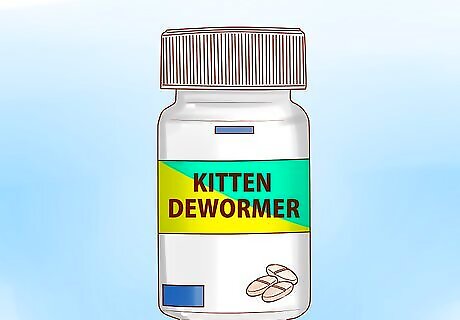
Get an over-the-counter kitten dewormer. If you want to deworm your kitten at home before taking them to the vet, you can buy a commercial dewormer. Look for products containing pyrantel pamoate, which will kill round and hookworms. Only use over-the-counter dewormers that are labelled as safe for cats. You must look at the age restrictions on the dewormer to make sure the kitten is old enough. Some dewormers are for cats six weeks and up, while others may be nine weeks and up. Over-the-counter worm preventatives and treatments may come in liquid, tablets, or topical solution. A liquid solution is given orally, as are the tablets. Topical solutions are liquid solutions that are placed directly on the skin. No dewormer will get rid of all types of worms. While a commercial dewormer will get rid of most common types of worms, your kitten may still have worms that aren’t treated by the medicine. Take your cat to the vet as soon as you can to get a fecal exam, so they can be treated for the specific worms they carry.

Start deworming kittens when they’re 3 weeks old. Most kittens are born with worms. Pregnant cats often pass worms that were dormant in their system to their kittens through the womb or after birth through milk. Because of this, start the deworming process at around two to four weeks of age.
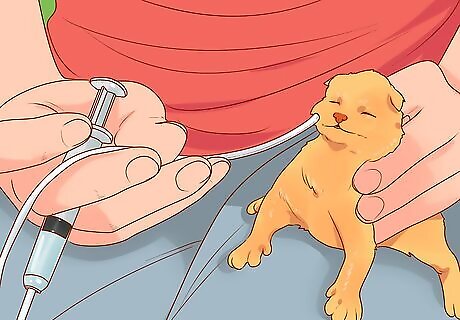
Deworm your kittens every two weeks until the kittens are two months old. Start treatment when your kitten is 3 weeks old. Kittens needs to be dewormed often to get rid of all worms they may have. Kittens are also more susceptible to infestations, so deworming often helps combat that. Starting around two weeks of age, you should deworm your cat every two weeks for a total of four treatments. This means you will give your kittens dewormers at two weeks, four weeks, six weeks, and eight weeks. Some vets suggest starting dewormers at three weeks and others four weeks. As long as you start the deworming process within two to four weeks, your kittens should be fine. If you are unsure when you should start the dewormer, contact your vet.
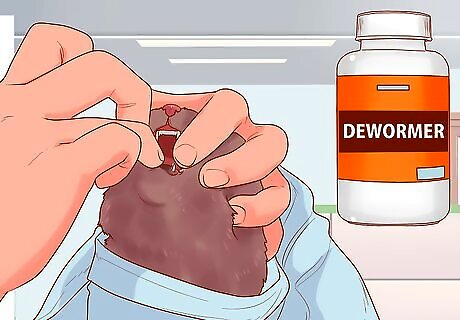
Give the kittens dewormers once a month until six months old. After the last of the biweekly treatments, around eight weeks, you should give the kittens dewormers once a month until they are six months old. This means they will get a dewormer at 12, 16, 20, and 24 weeks.
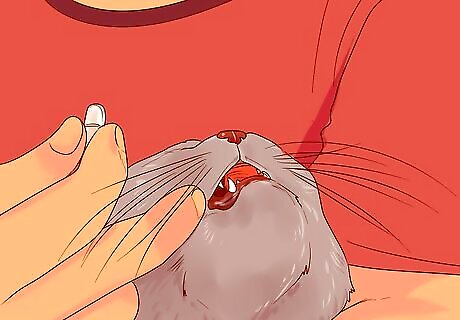
Administer the last dewormer at twelve months. After you have given the kittens their weekly and then monthly doses, the treatment will be more spread out. Give them a final kitten dewormer at 12 months of age. When the kitten turns one year old, you start deworming them as an adult.
Recognizing and Preventing Worms
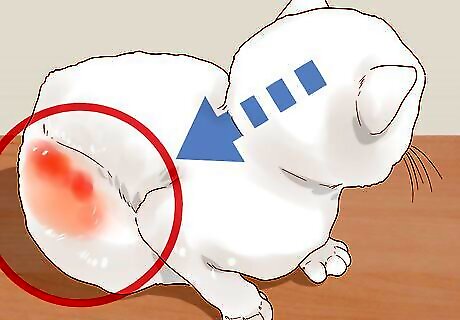
Look for a swollen abdomen. Kittens who have worms will have large, round, swollen tummies. This is different from the kittens gaining weight. The tummy will not match the rest of the body because the cat will not be gaining weight, despite an increase in appetite. The kitten may even lose weight.

Notice any stunted growth. Kittens with worms will not grow at the normal rate. They won't gain the right amount of weight each week. Instead, they will be smaller and unhealthy looking. Healthy kittens will gain weight as they grow. For example, by two weeks, they should be between eight to 14 ounces, and by four weeks they should be 12 ounces to 1.3 pounds. Healthy kittens will gain around 1.75 to 3.5 ounces each week. This occurs because the worms are taking the nutrients that the kitten needs.
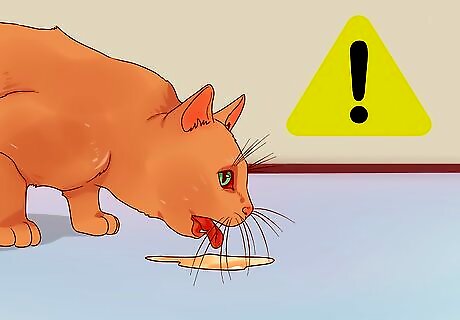
Monitor for any digestive issues. Worms cause problems with a kitten’s digestive system. Worms may cause the kitten to lose their appetite or vomit. They also may have diarrhea, and sometimes it may be bloody. Often, you will find worms in the vomit or feces, and you may even see worms around the anal area.
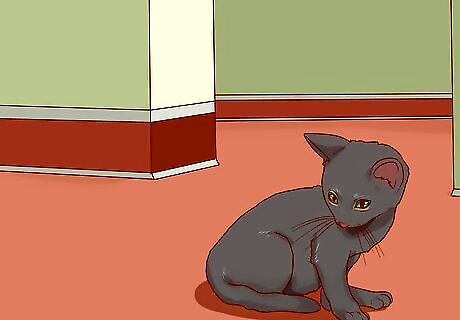
Prevent worms by keeping your kitten indoors. The best way to prevent your kitten from getting infected with worms is to keep them indoors. Outdoor cats come into contact with all sorts of things that may transfer worms to them, such as contaminated feces, food, or animals. This also helps protect them from ticks, fleas, and other parasites.



















Comments
0 comment